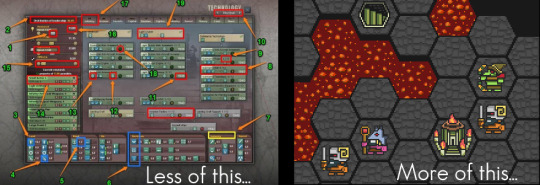BrainGoodGames Design Commandment #1: Known Rules
This is part of a series of articles detailing the design axioms of BrainGoodGames. This post talks about the value of the player knowing the rules to the game.

This post is part of a series of articles detailing the BrainGoodGames Design Commandments. You can see the full list here.
Strategy games need something for the player to consider (re: strategize). However, humans are fantastic at immediately grokking patterns and finding solutions to problems, so it can be very difficult for your system to keep up in the arms race and remain interesting! Some games attempt to remain interesting by having a ton of rules or very complex rules (grand strategy games are a classic example of this). While this does give the player something to think about, I would argue that oftentimes what they are thinking about is not strategy. I would define strategy as more
a) How do I accomplish my goals within these limitations?
rather than
b) How do these systems work? What are my limitations?

To that end, in order for the player to be more engaged with the types of strategic thinking I want, they need to know all the rules of the game (or at least the vast majority). This allows them to quickly understand their different options and weigh them against each other, as well as reach out mentally into future turns and still be able to process the chain of events that will happen.
TL:DR : making a carefully considered best guess as to what the correct move is when you know all the immediate ramifications will be is much more interesting than calculating out what those ramifications even ARE and then selecting the one that gives the highest number.
Read more about:
BlogsAbout the Author(s)
You May Also Like







.jpeg?width=700&auto=webp&quality=80&disable=upscale)








